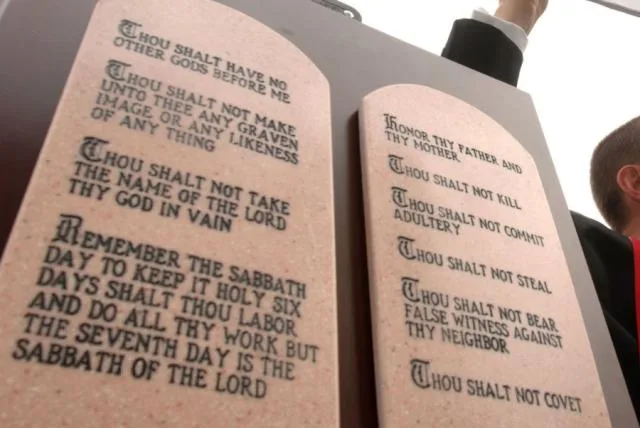Key Points:
“Several families of diverse faiths and one atheist family are suing the state of Louisiana over a 2020 law requiring the Ten Commandments be displayed in public schools.”,
“Plaintiffs argue the law violates the Establishment Clause of the First Amendment, which prohibits government endorsement of religion.”,
“The lawsuit claims the law creates a hostile environment for students of non-Abrahamic faiths or no religious beliefs.”,
“Supporters of the law argue it promotes moral values and historical significance, not religious indoctrination.”,
“The case is expected to be highly contentious and closely watched, potentially setting a precedent for similar legislation in other states.”
Insights:
“The lawsuit highlights the ongoing tension between religious freedom and the separation of church and state in the US.”,
“It reflects a broader national debate about the role of religion in public schools and the limits of government endorsement of specific faiths.”,
“The outcome of the case could have significant implications for the future of similar laws in other states considering similar legislation.”,
“The case underscores the importance of protecting the religious freedom of minority groups and ensuring that public schools are inclusive environments for all students.”
The lawsuit highlights the ongoing tension between religious freedom and the separation of church and state in the US., The case underscores the importance of protecting the religious freedom of minority groups and ensuring that public schools are inclusive environments for all students.
Content:
A group of Louisiana families, including Christians, Buddhists, a Jewish family, and an atheist family, have filed a lawsuit challenging a 2020 state law that mandates the display of the Ten Commandments in public school classrooms. The lawsuit asserts that the law violates the Establishment Clause of the First Amendment, arguing it constitutes an unconstitutional government endorsement of religion. The plaintiffs contend that the law fosters a hostile environment for students who do not adhere to Abrahamic faiths. Conversely, proponents of the law argue that it emphasizes moral principles and historical importance rather than promoting religious indoctrination. The outcome of this closely scrutinized case could establish a precedent for similar legislative efforts in other states.
Our Perspective:
While legal battles concerning religious displays in public spaces are not uncommon, this case stands out due to the diverse faith backgrounds of the plaintiff families. Their united front underscores the broad concern surrounding this law and its potential to marginalize students from various religious and secular perspectives. The inclusion of non-theistic families alongside those from minority faiths amplifies the message that the lawsuit is not about suppressing one religion but upholding the principle of religious freedom for all.



